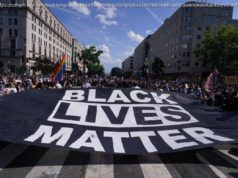 Germany’s highest court has rejected an historic attempt to ban the country’s far-right National Democratic Party (NPD).
Germany’s highest court has rejected an historic attempt to ban the country’s far-right National Democratic Party (NPD).
The Federal Constitutional Court ruled that the NPD did not have the potential to overthrow democracy in Germany.
The NPD has around 5,000 members but no seats in the Bundestag, the German parliament’s lower house.
It is the second time an attempt to ban the NPD has failed. In 2003 a scandal over undercover agents prevented a ban.
The case against the NPD was brought by the state governments represented in the upper house, the Bundesrat.
The federal government supported the action, but was not directly involved in the case.
The constitutional court in Karlsruhe ruled that the NPD was hostile to German democracy but the party « lacks sufficient weight to enable its actions to lead to success ».
The NPD has 338 local council seats – 264 of them in the former communist East Germany. The party has no seats in regional assemblies, since it failed to reach the election threshold in September in Mecklenburg-West Pomerania.
The court ruling comes as the NPD has mostly been eclipsed by the rise of the right-wing, anti-immigrant Alternative for Germany (AfD).
The AfD is expected to win some seats in the general election in September, and is seen as a threat to Chancellor Angela Merkel’s conservative Christian Democrats (CDU).
Only the constitutional court can ban a party in Germany. It has happened only twice since the defeat of Nazi Germany in 1945.
A successor to the Nazis, the Socialist Reich Party of Germany (SRP), was banned in 1952. And in 1956 the then West Germany banned the Communist Party (KPD).
NPD members have joined regular « anti-Islamisation » marches by the right-wing Pegida organisation, based in Dresden.






